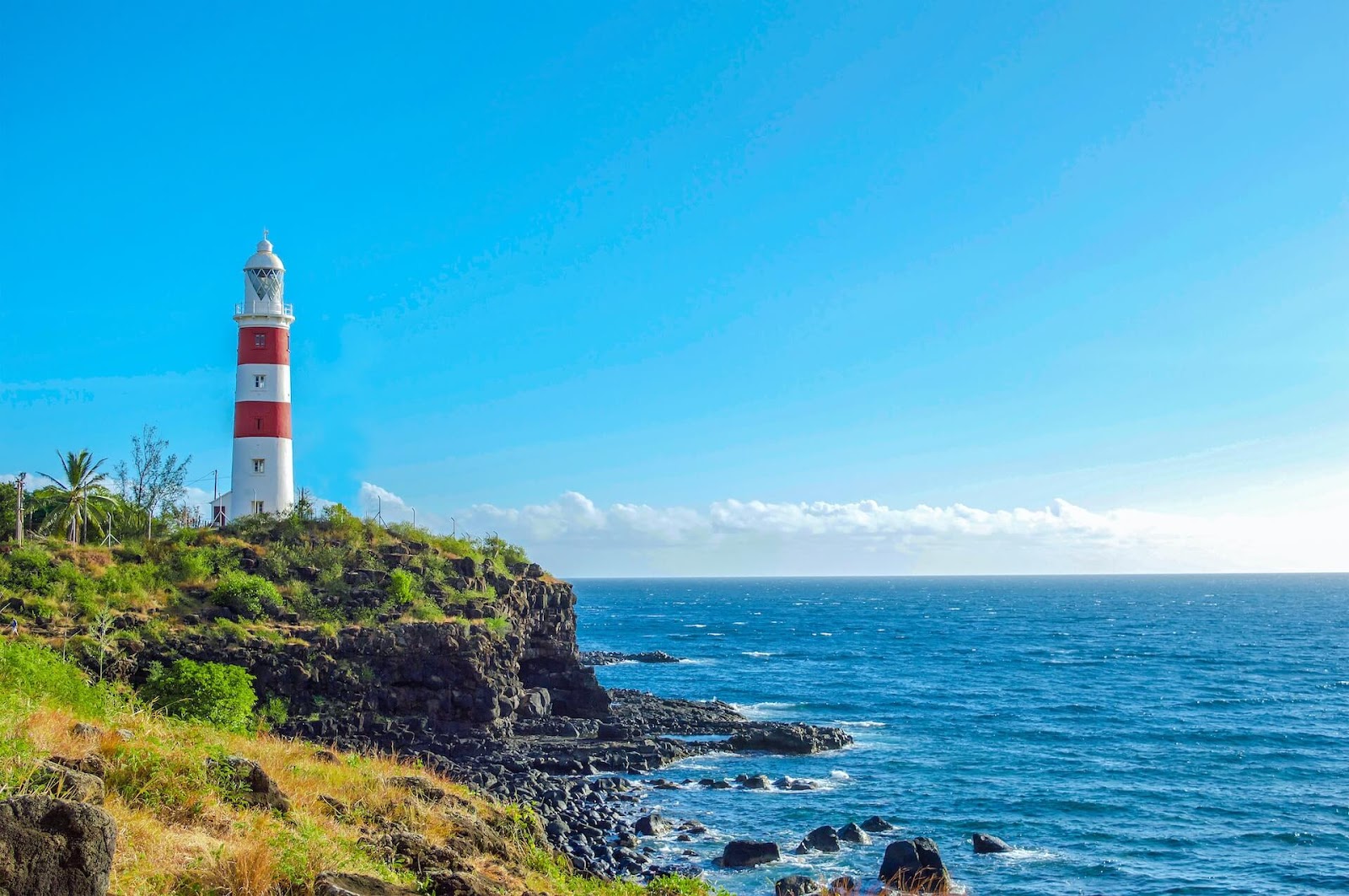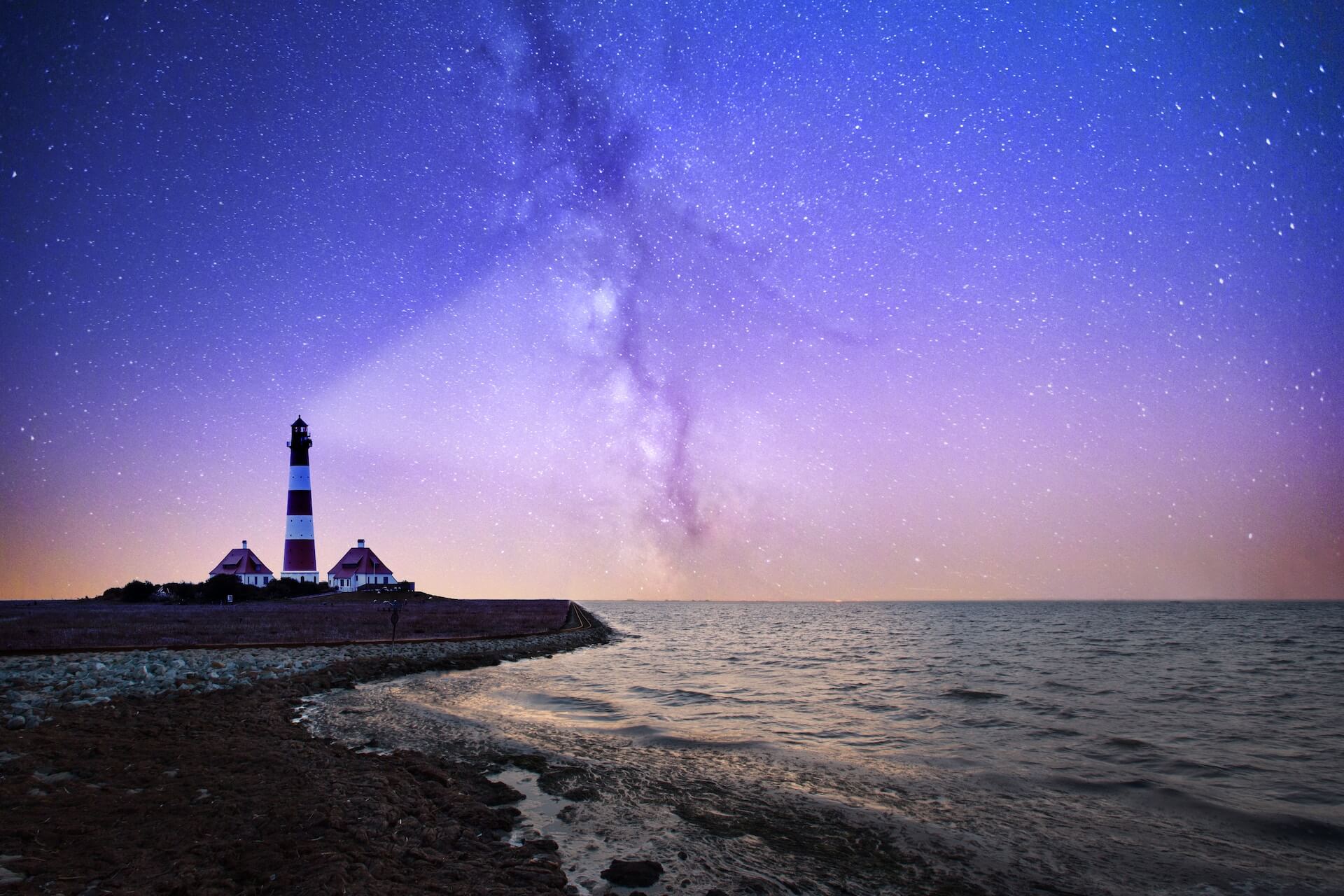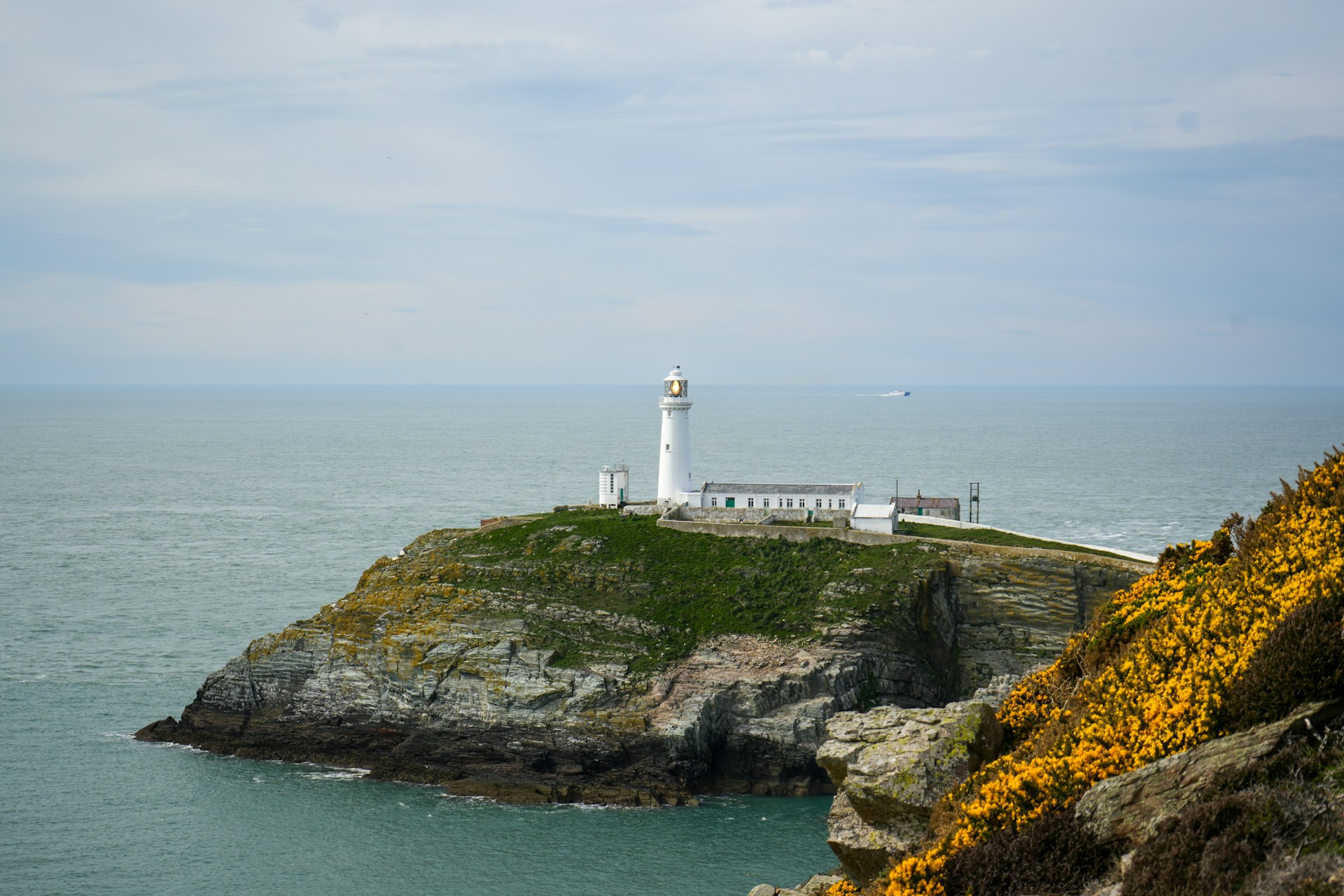
As an Amazon Associate, Modded gets commissions for purchases made through links in this post.
Do lighthouse keepers still exist in the 21st century? When you walk by these tall seaside structures, they seem empty while standing tall. The U.S. Coast Guard, historical societies and private owners have turned to automation and nearly eliminated the need for human help. However, you can still get a tower keeper job in some areas. Here’s what you need to know about modern lighthouse keeper jobs.
Are Lighthouse Keepers Still Getting Jobs?

Yes, you can still get a lighthouse keeper job in the 2020s. The demand in 2025 is lower than in 1925, but jobs open up from time to time. For example, the Canadian government hires assistant lightkeepers in British Columbia — think about the West Coast where Vancouver is. The position requires a Restricted Operators certificate and a Canadian residency. You’ll also need knowledge of operating mechanical and electrical equipment.
Do you know any lighthouse keepers in the United States? In December 2022, the East Brother Light Station announced hiring two lighthouse keepers to upkeep the light station near Point San Pablo. Applicants must have a U.S. Coast Guard captain’s license, so you can’t have any average person applying for the job.
While automation has overtaken many American lighthouse keeper jobs, some positions are open for people. For instance, state law requires the Boston Harbor Islands National Recreational Area to have people work at the Boston Light.
Other Roles Besides Keeper
Are lighthouses still manned with staff besides the keeper? You’d be hard-pressed to find others at the tower. However, there are a few other roles you could catch. For instance, local engineers and technicians could come work on the mechanical and electrical systems. Regular maintenance and occasional repairs are necessary to keep the lighthouse functional.
Additional personnel may include mariners who transport people and supplies to the lighthouse. These maritime professionals are crucial to towers in remote locations. A trip to Walmart is far from an easy drive from these lighthouses. Depending on the area, lighthouses may have tour guides and hosts to show visitors around and tell them the tower’s history.
What Duties Do Lighthouse Keepers Have?
So, what do lighthouse keepers do at their jobs? The job entails more than sitting in a chair and watching the lights go by. Here are some typical duties you’ll have as a lighthouse keeper.
1. Upkeep the Lighthouse
The first duty is maintaining the lighthouse— the lights and the tower itself. Seeing in the dark can be difficult for the boats at sea, so the lighthouse keepers must ensure the light shines brightly. Lives are on the line, so the employees must do a superb job and be attentive! In 19th-century Michigan, you could get fired for being intoxicated on the job.
The last thing you want is to practice more interview prep, so ensure you’re fully aware of what’s happening. It may help to contact people worldwide with lighthouse keeper jobs for firsthand information. These conversations may help your attention to detail, maritime history knowledge and technical aptitude. For example, you need to know how to perform maintenance and repairs.
2. Additional Maintenance
If you stay on land, you could have additional responsibilities. Multiple lighthouses could line the coast, requiring you to visit each one. Additionally, there could be other buildings on the property you must maintain. For instance, a Canadian couple in British Columbia upkeeps 12 historic buildings on Lennard Island seven days a week. These structures include houses, radio rooms, battery sheds and more.
Some lighthouse keepers put on their Saturday morning hats and do landscaping. You’re responsible for keeping the grounds clean and attractive to visitors, so grab the electric chainsaw and get to work. If the lighthouse sits on barren rocks, the organization may bring in soil to create gardens. Your duties could also include clearing drains to prevent flooding.
3. Watching the Weather
When you’re watching ships go by, what’s the most danger the crew members could be in? Bad weather is the last thing you want to see, and lighthouse keepers must help boats when the weather is treacherous. Otherwise, sailors could be in for a world of trouble.
During lousy conditions, you’ll have to report your weather readings to the National Weather Service, which sends warnings and advisories to the people at sea. From your vantage point, you’ll see hazards and other obstacles boats will face in your view. It’s your job to report visibility and cloud height to help other maritime professionals. Even if it’s dark, the job must be done.
4. Finding People in Distress
The weather at sea can get just as bad as it does on land. For example, you may see a tornadic waterspout or a water tornado. This phenomenon occurs when a tornado forms over water or transitions from the land to the sea. Like land tornadoes, these systems carry lightning, hail and strong winds.
When the storms strike, there may be people in distress. Who is the first person available to help? It’s the lighthouse keepers. These workers help search and rescue missions by directing emergency vessels toward the accident. They may report sightings and provide other assistance to the Coast Guard.
5. Hosting Visitors
Why so serious? The lighthouse keeper’s job isn’t always full of crises. Sometimes, you can relax and have a little bit more fun. One of the lighthearted duties of lighthouse keepers is hosting visitors. Spring and summer bring warmer weather, and people visit the coast. Have you ever taken a long road trip to the beach? Part of your job may include giving tours and teaching guests about the lighthouse’s history.
Lighthouse keepers invite people to see historical landmarks and learn about the past. Towers in remote locations may serve as popular tourist attractions with overnight stays. Some organizations let you take over lighthouse keeper duties! For example, Grand Traverse Lighthouse’s program requires you to greet visitors and help in the gift shop.
6. Managing the Gift Shop
Directing boats and overseeing the ocean are the main priorities. However, you still may have a gift shop where people can buy trinkets. These lighthouse stores typically include handmade crafts, artisanal goods and interesting collectibles. Lighthouse-specific memorabilia could be miniature models, Christmas ornaments and homemade artwork. Regardless, there’s something for everyone at these shops.
Selling productions is vital to raising funds, as these opportunities may be slim. That said, the lighthouse keeper may be responsible for tracking inventory, sourcing, ordering and stocking. Local suppliers are preferable because they can transport items more quickly. Plus, you have to consider the logistics costs for remote locations.

Perks of Being a Lighthouse Keeper
Being a tower keeper isn’t the most conventional job, but it’s rewarding with these six benefits.
1. Decent Wages
How much do lighthouse keepers make? They don’t make the same amount of money as a doctor or a lawyer, but there is a decent job market. The position has specific qualifications only a handful of people can fulfill, helping you earn a living wage. Plus, the economy doesn’t significantly affect the job, making it a recession-proof position.
ZipRecruiter says the national average for this position is over $24 per hour or a yearly salary of nearly $50,000. What about the lighthouse job in California? That job pays about $140,000 annually, which you’ll need in the Bay Area.
2. Added Benefits
With lighthouse keeper jobs, you could be far from the nearest road or port. Therefore, you need help getting to the building. Luckily, you’ll get transportation to the lighthouse from the Coast Guard or your employer. You might not have to own or operate a car daily, thus reducing your risk of engine problems and breaking down. Plus, offshore lighthouses get regular supply drops to ensure you have enough food and water.
3. Location
In the age of remote work, many employees are going just about anywhere to get the job done. Some even work on the beach, watching the waves in the background. What if you could make the Pacific or Atlantic Coast your worksite daily? Lighthouses often provide spectacular ocean views, making just about anybody jealous of your office with a view.
4. Quietness

Do you like to work by yourself? Some people enjoy working in solitude as the hours pass by. Lighthouse keepers generally work by themselves for long stretches of the day. You may interact with other workers if the lighthouse has staff and boats needing assistance. Plus, you may have to give tours. Other than that, maintaining the lighthouse lets you be a lone wolf.
5. Learning Skills
Being a lighthouse keeper is rewarding because you get to learn new skills. For example, you’ll hone your craft with electrical work while keeping the lights on. How good are your navigational skills? You must be able to read maps and help boats as they’re out in the water. Lighthouse keepers typically work with advanced GPS systems to identify those in the ocean. Plus, you’ll need great search and rescue skills if you find someone in distress.
6. Tight-Knit Crew
Some lighthouses have multiple crew members, meaning you’ll work with the same people daily. Tight quarters and solitude mean you’ll get to know your co-workers relatively quickly. After a few weeks, they’ll feel like personal friends and family. The bond tightens if you endure challenging situations like thunderstorms or hurricanes. You’ll have to work together to ensure safety.
Challenges of Lighthouse Keeper Jobs
Lighthouse keepers have a rewarding job, but it’s not without challenges. The position comes with these five drawbacks.
1. Isolation
Quietness is a pro for some people, especially those who like solo adventures or quiet time. However, life as a lighthouse keeper can quickly become quiet and boring for some. If you thrive on social interaction with co-workers and customers, there may be a better job than working in a lighthouse. After a few days alone, you could ask why there are still lighthouse keepers if the job is isolating.
2. Remote Location
The coastlines provide postcard-worthy images for your Christmas cards. However, they can be pretty remote. Many lighthouses are in isolated places far away from the cities. You can live in a small-to-medium town and still drive an hour or more to work. Some people enjoy the drive and living in a small town, whereas others like being in the city. Remote locations can be a turnoff.
3. Dangers

Most days provide a calm and tranquil environment, but the job does provide some dangers. The conditions can especially be harmful when there’s lousy weather. You can’t call out and stay home when there are thunderstorms — you’re expected to stay and help those in the water. Also, you need to be comfortable with heights because lighthouses can be pretty tall when overlooking the ocean.
4. Sense and Responsibility
Lighthouse keepers have quiet days and nights, though the stakes are high. If you’re the only employee, keeping the lights on and guiding ships to shore is up to you. The stressful duties of lighthouse keeper jobs may be too heavy for some people. You must also consider irregular sleep schedules, especially when nighttime emergencies require your attention.
5. Lack of Advancement
The highest heights you’ll climb in your career are the stairs going up the ladder in your lighthouse. The room for career advancement isn’t necessarily strong for a lighthouse keeper, so this job is assuredly one for those with a passion. You need to love lighthouses more than you like being a CEO. If you’re OK with a life of solitude and steadiness, you could make it your career for a long time.
6. Unpredictable Wildlife
Living and working near the ocean makes you more likely to encounter wildlife. In these situations, you must be careful and not assume they’ll be friendly to you. If no animals are around during the day, lighthouse keepers must be aware of potential dangers at night. For instance, a Florida tower keeper must be wary of alligators while on the job, considering they roam the beaches.
For instance, a Florida tower keeper must be wary of alligators while on the job, considering they roam the beaches. Depending on the location, you may encounter odd circumstances like dead fish on the shore or massive flocks of birds swirling around the lighthouse.
The Most Interesting Lighthouses Worldwide
Lighthouses make you think of Maine and other coastal states. However, there are plenty of lighthouse keeper jobs worldwide. Here are five of the most interesting ones.
1. Zumon Lighthouse
Do lighthouse keepers still exist in the most dangerous locations? Look no further than Zumon Lighthouse in France. Also called La Jument, this structure is nearly 300 miles from Ushant while overlooking the Celtic Sea. The lighthouse has a reputation for the North Atlantic waves that overtake the building and endanger the keeper inside. Plus, it takes hours for assistance to arrive.
Most days provide a calm and tranquil environment, but the job does provide some dangers. The conditions can especially be harmful when there’s lousy weather. You can’t call out and stay home when there are thunderstorms — you’re expected to stay and help those in the water. Also, you need to be comfortable with heights because lighthouses can be pretty tall when overlooking the ocean.
2. Tower of Hercules

How would you like to work at a UNESCO World Heritage Site? The Tower of Hercules in northwest Spain is a beautiful European location with a long history. Experts say Ancient Romans built the lighthouse in the Middle Ages to aid Atlantic sea routes. Occasional renovations have occurred, but the old architecture is still present.
3. South Stack Lighthouse

Head north to Wales to see the South Stack Lighthouse, built in 1809. This two-centuries-old structure exemplifies the isolation aspect of lighthouse operator jobs, as you’re off the mainland and a decent drive away from Holyhead. The lighthouse is on a cliff, so you have some protection from the enormous waves. However, you have to climb hundreds of steps to get to it.
4. Les Eclaireurs Lighthouse

If you want to get even more remote, head to the Faro Les Éclaireurs lighthouse in southern Argentina. The structure is so far south that it nearly crosses the Chilean border as the Beagle Channel surrounds it. Unlike other cool lighthouses, you don’t have land access. If you have a tower keeper job here, your only friends are the birds.
5. Tourlitis Lighthouse
Not all lighthouse keeper jobs worldwide take you to cold waters. If you want a warmer setting, head to the Tourlitis Lighthouse in Greece. This site is not far from Andros, enjoying the more comfortable Icarian Sea. While constructed in 1897, the lighthouse was destroyed during the Second World War. However, the Tourlitis Lighthouse has been given a second life and is a popular tourist attraction.
Why Do Lighthouse Keepers Still Exist?
Automation has entered health care, finance and even lighthouse keeper jobs. However, the positions aren’t entirely gone. You can still have a career with Coast Guard experience and similar qualifications. The days and nights can get lonely, so you must be OK with isolation. However, you could significantly help ship captains and feel rewarded.
Originally posted 10/3/23 – Updated 11/14/25






